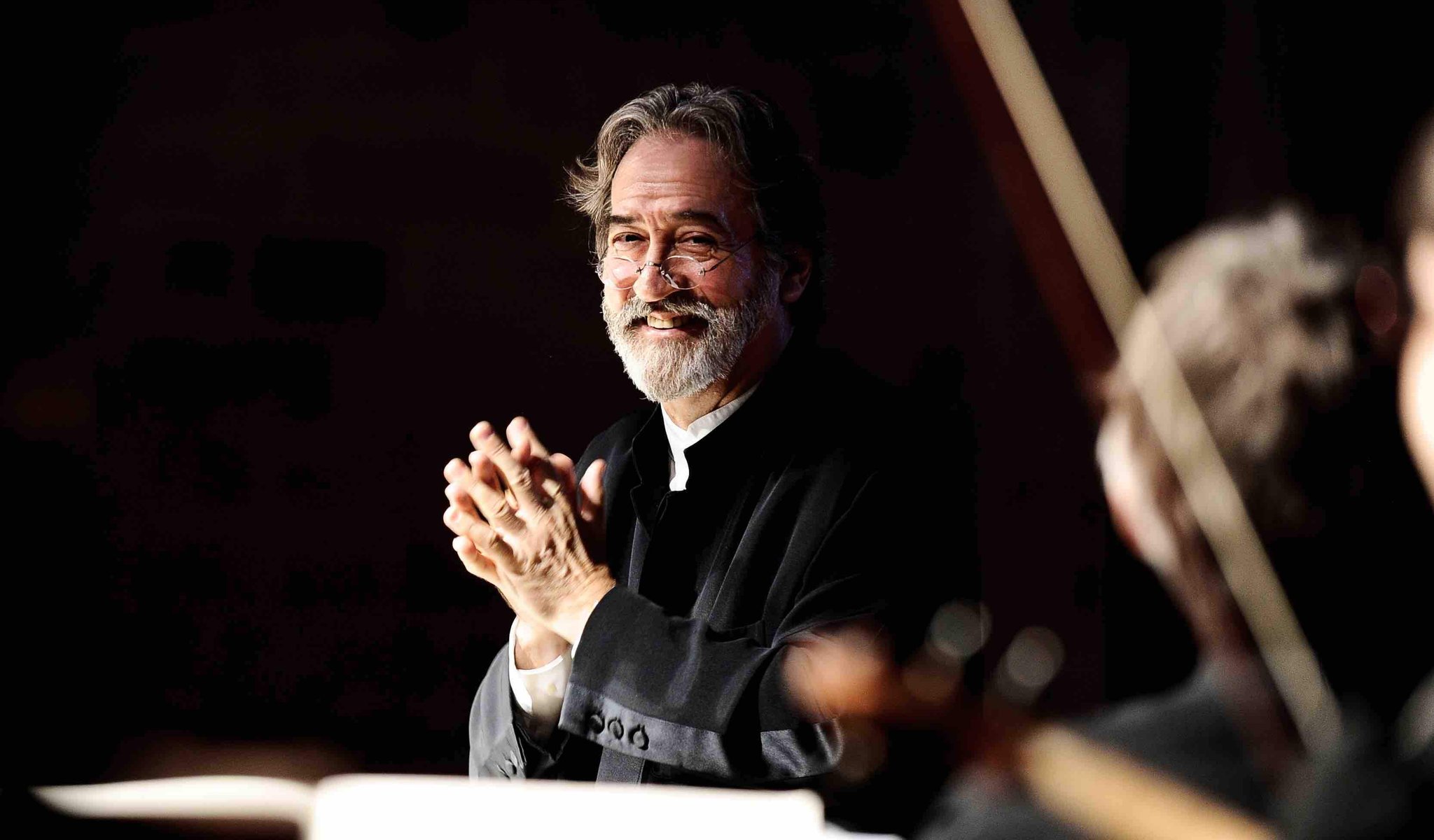
Baroque concert: Handel, Telemann, Gluck
Savall
Program
Featuring
Other information
The event is about 2.5 hours long.
About the event
Jordi Savall is at the helm of the Budapest Festival Orchestra again! This time, the living legend of early music will be conducting a production centered around the themes of natural elements and the furies, performed on historic instruments by the BFO’s baroque music ensemble founded in 2011. The program showcases three musical milestones and three personalities of the 18th century. The protagonist of the first half of the evening is water. The Handel suite was first performed on the Thames, and Telemann’s piece celebrates the source of Hamburg’s economy, the river Elbe. The two ten-movement baroque suites are followed by Gluck’s ballet — at the end of the well-known story, Don Juan pays for his earthly sins. With a concert extolling the forces of nature, Savall aims to remind us that despite the environmental crisis, with collective effort, our planet can still be saved.
Water Music is associated with one of the most exciting concerts in the history of music. In 1717, Handel – who would fall in and out of favor with the ruler – hoped to please the monarch by composing three suites in honor of King George I. The pieces were performed on the Thames, on a boat close to the king’s barge. If the two vessels were close to one another, the orchestra would play the softer Air or one of the minuets; if they were further apart, they played the more lively dance movements. The performance was a resounding success. The so-called French overture of suite No. 1 begins slowly and elegantly, rich in drawn-out rhythms, and concludes with a lively, fast-paced passage. Among the following movements, we find a fanfare-like allegro, a staccato adagio, an elegant and robust minuet, a bourrée that appears with a different orchestration each time, and an andante closing the piece in a minor key.
In 1723, the centenary of the founding of the Hamburg Admiralty was celebrated with a grand event. Resounding with cannon shots and adorned with flags, the music for the occasion was written by Telemann, the city’s foremost composer, who wrote hundreds of suites throughout his life. In homage to the port city, the sea took center stage in the composition, evoking all of its moods and characters. After the overture showcasing the various facets of water, mythological figures familiar to sailors step into the limelight. First, Thetis, the sea nymph, appears asleep then awake (sarabande and bourrée), followed by the lovelorn Neptune (loure), the Naiads (gavotte), Triton (harlequinade), and finally, Aeolus and Zephyrus, the masters of the winds. The suite concludes with dance movements depicting the ebb and flow of the tide and sailors reveling in the tavern.
Barely a year before the famous Orfeo ed Euridice (Orpheus and Eurydice), Gluck composed his ballet pantomime, Don Juan. Similarly to his operas, Gluck reformed ballet as a genre by prioritizing the relationship between music and dramatic plot over the technical qualities of the performers. Elaborate characters, deep emotions, non-interchangeable and indispensable movements characterize his storytelling. The piece made an impact on Mozart’s operas as well. After the overture of the suite that makes up a third of the ballet, the story of Don Juan and the governor unfolds, culminating in the music of damnation. After the monumental movement that brings to life earthquake, hellfire, and the restless dance of the Furies, the story concludes with the trumpet and trombone playing pianissimo.
Did you know? Handel’s Water Music premiered in London on July 17, 1717; Telemann’s Water Music premiered in Hamburg on April 6, 1723; Gluck’s Ballet Suite premiered in Vienna on October 17, 1761; this will be the Budapest Festival Orchestra’s first performance of Handel’s and Gluck’s pieces; its most recent performance of Telemann’s Water Music was on March 8, 2020 (conductor: Jordi Savall).
Contemporary events: Italian composer Antonio Vivaldi composed his Violin Sonata in C minor in 1717 (RV 5) / English poet Alexander Pope published his work Elegy to the Memory of an Unfortunate Lady in 1717 / German philosopher Christian Wolff, a leading figure of the early Enlightenment, was accused and found guilty of atheism in 1723, stripped of his university position and ousted from Halle / German composer Johann Sebastian Bach’s Magnificat in E-flat major premiered in Leipzig at Christmas 1723 / French painter François Lemoyne painted his painting Perseus and Andromeda in 1723 / England’s King George III married Sophia Charlotte, Princess of Mecklenburg-Strelitz, on September 8, 1761 / French philosopher and writer Jean-Jacques Rousseau’s sentimental epistolary novel Julie or The New Héloïse was published in 1761 / Austrian composer Joseph Haydn composed his Symphonies No. 6, 7 and 8 in 1761 (“The Morning,” “The Noon” and “The Evening”)